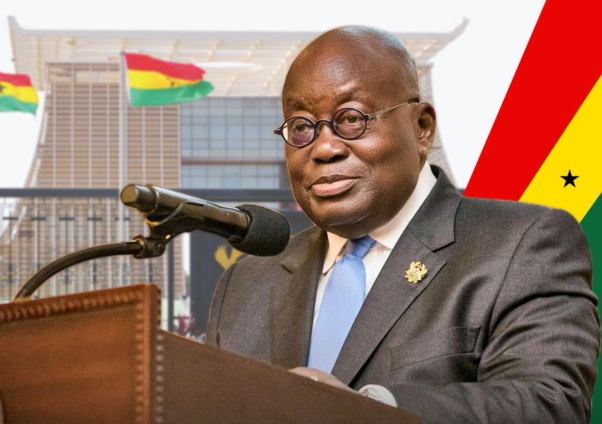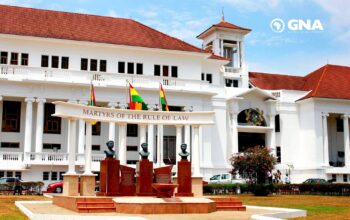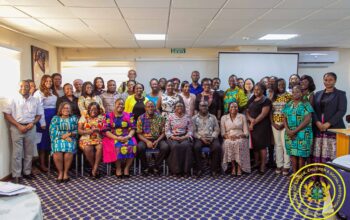The post-election poll conducted by Global InfoAnalytics highlights that a significant 68% of respondents attribute the New Patriotic Party’s (NPP) defeat in the 2024 general elections to former President Nana Akufo-Addo. This reflects a strong sentiment among the public, suggesting that many voters and political observers believe that his leadership and actions during his tenure may have played a key role in the party’s loss.
The poll results could have wide-reaching implications for the NPP’s future strategies and leadership decisions. It may prompt the party to reassess its direction and potentially look for new leadership to regain voter confidence in future elections.
The poll results provide a detailed breakdown of public sentiment surrounding the NPP’s defeat in the 2024 general elections. Along with former President Nana Akufo-Addo, key figures in the party also face significant blame for the loss. According to the findings:
- 40% of respondents hold former Finance Minister Ken Ofori-Atta responsible.
- 37% attribute the defeat to Dr. Mahamudu Bawumia, the NPP’s presidential candidate in the 2024 election and former Vice President.
These results suggest that voters view the leadership of both Ofori-Atta and Bawumia as major factors in the NPP’s electoral loss, with Ofori-Atta’s tenure as Finance Minister likely influencing economic perceptions, and Bawumia’s candidacy failing to galvanize the electorate in the way the party may have hoped. This feedback could be crucial for the NPP as they look to rebuild and reassess their approach to governance, leadership, and strategy moving forward. The party may need to address these concerns as it looks toward future elections. The extended breakdown of the poll further highlights how widespread the perception of responsibility for the NPP’s defeat in the 2024 elections is among various key figures. Here’s the additional data:
- 33% of respondents blame Dr. Matthew Opoku-Prempeh, a key government figure.
- 32% place blame on other government appointees.
- 25% of voters assign some level of responsibility to Members of Parliament.
The data strongly suggests that many voters felt the overall performance of the Akufo-Addo-led government was a decisive factor in the NPP’s loss. Economic challenges, governance issues, and a general sense of public dissatisfaction appear to have fueled the perception that the former President’s leadership was central to the party’s failure in the 2024 election.
This sentiment reflects broader concerns about the government’s ability to meet the needs and expectations of the electorate, particularly in areas such as economic management and governance. The fact that blame is spread across key figures—including the President, his ministers, MPs, and other appointees—indicates that the issues may have been systemic and not limited to one individual or position.
Moving forward, these findings could prompt the NPP to reconsider its leadership and governance strategies, especially if they aim to regain voter trust in future elections. It also sets the stage for discussions on how the party can address these concerns to win back the electorate.
The fact that only 9% of respondent blame Kennedy Agyapong, despite his involvement in the NPP’s primaries, is a noteworthy aspect of the poll. His relatively low level of blame suggests that voters, while perhaps acknowledging intra-party competition, largely held those directly involved in the government’s administration accountable for the party’s defeat. This points to the fact that most of the dissatisfaction was linked to the performance of the Akufo-Addo-led government, rather than the dynamics within the NPP itself.
The low level of blame for Agyapong also indicates that voters may have separated his primaries campaign from the broader governance issues that ultimately influenced the election results. While his candidacy may have had an impact on the party’s internal politics, it appears that it was not seen as a major factor in the electoral defeat.
The findings underscore the complexities of voter sentiment, showing that many voters are focused more on governance challenges and the performance of the ruling administration than on party politics or leadership contests. For the NPP, this highlights the significant challenge ahead: addressing the broader issues of governance and public dissatisfaction if it is to rebuild and regain trust for future elections.
As the NPP looks ahead, these insights will be crucial in shaping their next steps, as they may need to focus on rebuilding public confidence in leadership and governance rather than simply resolving internal party issues.










